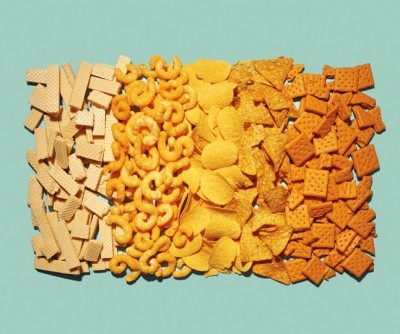Study: Do vegetarian diets impact growth outcomes for kids?

Researchers from St. Michael's Hospital of Unity Health Toronto studied health data of nearly 8,907 Canadian children (aged 6-months to 8-years-old), including 248 vegetarian diet followers, collected between 2008 and 2019 to see whether a vegetarian diet vs. meat-eating diet had any impact on body weight and other key measurements of growth.
The study was funded by the Canadian Institutes of Health Research (CIHR), St. Michael’s Hospital Foundation and SickKids Foundation.
“Over the last 20 years we have seen growing popularity of plant-based diets and a changing food environment with more access to plant-based alternatives, however we have not seen research into the nutritional outcomes of children following vegetarian diets in Canada,” said lead author of the study Dr. Jonathon Maguire, a pediatrician at St. Michael’s Hospital of Unity Health Toronto and a scientist at MAP Center for Urban Health Solutions at St. Michael’s Hospital.
In 2019, Canada made updates to its Dietary Guidelines recommending that Canadians opt for plant-based sources (e.g. legumes, nuts, seeds, tofu, fortified soy beverages) of protein more often and lower intakes of processed meat and foods high in saturated fat under its Guideline 1 recommendation.
According to the Canada's Dietary Guidelines, a shift to more plant-based eating typically results in higher intakes of dietary fiber, fruit and vegetables, nuts associated with decreased LDL-cholesterol, and soy protein associated with decreased LDL cholesterol.
'Vegetarian diets appear to be appropriate for most children'
After analyzing the health data of nearly 9,000 children researchers identified that children who followed a vegetarian diet had similar height, iron, vitamin D, and cholesterol levels compared to their counterparts who consumed meat but were two times more likely to be classified as underweight (defined as below the third percentile for BMI).
“This study demonstrates that Canadian children following vegetarian diets had similar growth and biochemical measures of nutrition compared to children consuming non-vegetarian diets," said Dr. Maguire.
However, he continued, "Vegetarian diet was associated with higher odds of underweight weight status, underscoring the need for careful dietary planning for children with underweight when considering vegetarian diets.”
Researchers noted how international guidelines about vegetarian diets in infancy and childhood differ and that past studies of the relationship between vegetarian diets and childhood growth and nutritional status have had conflicting findings.
Therefore, researchers emphasized that parents and caretakers of children following a vegetarian consult closely with healthcare providers who can monitor their child's growth patterns and provide more education and guidance.
“Plant-based dietary patterns are recognized as a healthy eating pattern due to increased intake of fruits, vegetables, fiber, whole grains, and reduced saturated fat; however, few studies have evaluated the impact of vegetarian diets on childhood growth and nutritional status. Vegetarian diets appear to be appropriate for most children,” said Dr. Maguire.
Study limitations
While researchers came to the conclusion that many children can follow a vegetarian diet safely while meeting the same growth milestones as children who consumed meat, the study did have some limitations.
One being that researchers were unable to assess the quality of the vegetarian diets, which can come in many forms and therefore further research is needed, they added.
"Larger longitudinal cohort studies with more detailed measures of dietary intake and longer duration of follow-up are needed to fully assess growth and nutritional outcomes," researchers wrote.
Source: Pediatrics
https://doi.org/10.1542/peds.2021-052598
Vegetarian Diet, Growth, and Nutrition in Early Childhood: A Longitudinal Cohort Study
Authors: Laura J. Elliott, et al.
















